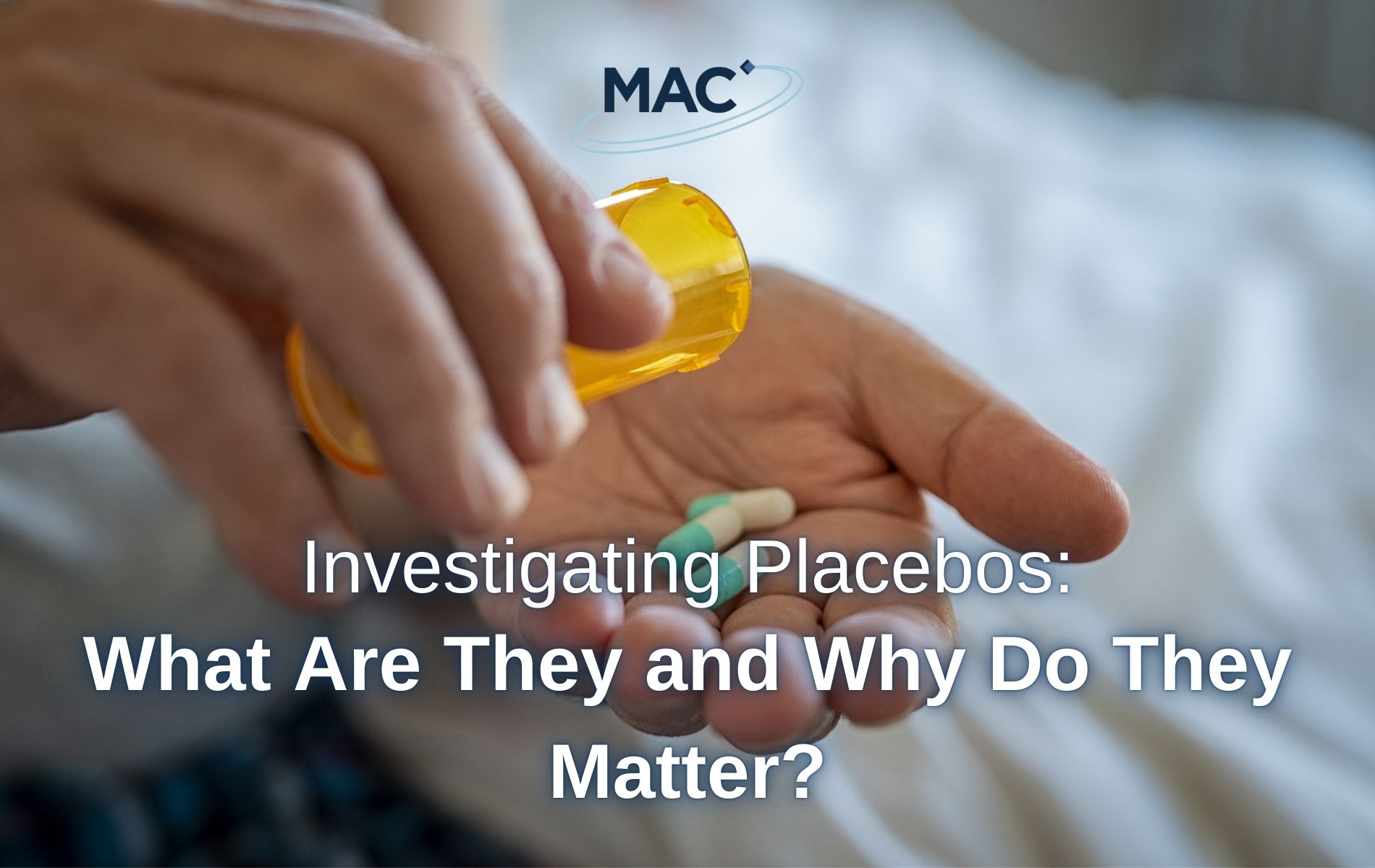The mind has the power to alter our perception of physical sensations. It can contribute to the development of physical disorders, such as stress leading to increased blood pressure, and subsequently increasing the risk of heart disease. This is also true of the impact that treatments have on our ailments. Approximately one in three people who take a placebo experience some level of relief from their symptoms, including pain, headache, and seasickness1. Why is this the case?
What is a placebo?
A placebo is something that has all the indicators of a ‘real’ medical treatment but has no active properties. The placebo could be a sugar pill, a water or saline injection, or potentially a fake surgical procedure1.
What is the placebo effect?
The placebo effect is when a person’s mental or physical health seems to improve when administered a placebo treatment. Your brain is able to convince the body that the treatment is real and mimic healing. Placebos can reduce the symptoms that your brain controls, such as pain, stress, and nausea, but they are not curative. This means that while you may feel better, your tumour will not shrink and your cholesterol will not lower, for example2.
The ritual of taking medication and receiving treatment is key to the placebo effect. Even if the participant knows they are not taking active medication, the act of taking it can have a positive healing effect3. The reason why placebos work is not yet fully understood, but it is a complex neurological process that involves increased levels of dopamine and endorphins and greater brain activity in regions related to mood, emotional reaction, and self-awareness2. The effectiveness of a placebo can also be influenced by:
- Appearance – if the placebo looks like a real tablet, the participant is more likely to believe it is real.
- Attitude – the attitude of the participant is important, as the more they expect the treatment to work, the more likely they are to experience the placebo effect (believing that a treatment will not work is known as the nocebo effect).
- Changes in behaviour – taking the placebo may inspire participants to take better care of themselves, making them more likely to notice any improvements they experience.
How are placebos used in clinical trials?
A placebo is often used to test whether investigative treatments in clinical trials have an actual therapeutic effect. In most cases, the control group will receive a placebo, and the experimental group will receive the active drug. Clinical trial participants are not aware of which group they are in, meaning the researchers can determine if the treatment works by comparing the experiences of each group. If their reactions are the same, then the drug is likely to be deemed ineffective2.
Placebo trials are usually either single-blind, where the participants do not know whether they’re being given the active drug or the placebo, or double-blind, where neither the participants nor trial doctors know who is in which group4. Double-blind trials ensure that trial doctors treat participants without bias and do not influence the trial.
Some clinical trials utilise open label placebos, where the participant is aware that they are taking a placebo and not the active drug. Participants can still feel the placebo effect despite this, as the act of taking medication – opening the bottle and taking a tablet – influences participants. It’s important to note though that not all clinical research studies are placebo controlled. Phase I trials often involve only the active drug to assess safety and pharmacokinetics (how drugs move within the body) in a small group of healthy volunteers or patients. Similarly, Phase IV trials, conducted post-approval, focus on monitoring long-term effects and gathering further information on the treatment’s risks, benefits, and optimal use.
Interested in taking part in a clinical trial?
Participating in a clinical trial will enable you to take an active role in your own health care and potentially help with the development of future medications. Eligible participants will receive all study related assessments and treatments free of charge, plus transport will be provided or travel expenses reimbursed.
For more information on how you can get involved, please visit our current studies page.
References
1 Better Health Channel – Placebo effect
2 Havard Health – The power of the placebo effect
4 PMC – Statistics Notes: Blinding in clinical trials and other studies




